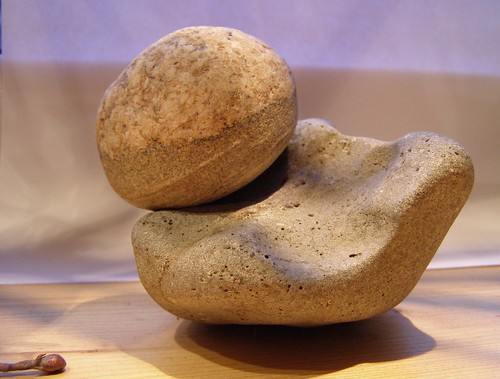 We spend a lot of time and energy thinking about the stimulus. It comes in the form of a training session, a treatment, or a medical intervention. In the world of sport, coaches focus on the specific training session(s) to perform in order to enhance performance. In the world of health care, we focus on the treatment intervention that will provide a specific treatment effect. The stimulus reigns supreme in our collective consciousness.
We spend a lot of time and energy thinking about the stimulus. It comes in the form of a training session, a treatment, or a medical intervention. In the world of sport, coaches focus on the specific training session(s) to perform in order to enhance performance. In the world of health care, we focus on the treatment intervention that will provide a specific treatment effect. The stimulus reigns supreme in our collective consciousness.
But a stimulus is only as good as the response it evokes. Better yet, a stimulus is only as good as the body's ability to recover from and adapt to the applied stimulus.
Recovery is the critical, and oftentimes forgotten, component of optimal health.
The human body is dynamic and constantly in a state of repair and remodeling, recovery and adaptation. Life on the planet is simply a lot of stimuli followed by a lot of responses. If given an environment in which the body can recover and adapt, it will do so readily.†
We love to focus our efforts on the "stuff" we do in just about all aspects of our world. The number of hours a day that we work or study. The duration of our training sessions. The number of repetitions of a certain rehab exercise. We have an almost cross-cultural belief that more must be better in just about anything and everything in life.
But everything has a point of diminishing returns in which adding more stimuli simply creates a bigger hole from which to recover and adapt. More studying doesn't necessarily equate to better grades. More training doesn't necessarily equate to better performances. The quality of the stimulus is important - but if we do not have the ability to recover from and adapt to these stimuli, then why stack on more and more stimuli?
Simple things - such as recovery - are easily forgotten.
If your immune system or metabolic status is impaired, or if you simply don't have the necessary nutrients on board, your ability to recover from and adapt to all these things will be diminished. Or, perhaps most frequently, your recovery and adaptation will be slowed.
In sport, you will have a diminished ability to recover from and adapt to your training.
In rehabilitation, you will have a diminished ability to recover from and adapt to your rehab activities.
In life - in sickness and in health, young and old - the same holds true.
Does your body have the capacity to accommodate the imposed demands? Enhancing immune function, optimizing metabolic status, and providing the necessary nutrients all promote as good an environment as possible for recovery and adaptation. It doesn't matter whether the stimulus is a training session, a treatment, or a medical intervention.
The stimulus is only as good as the response it evokes. Recovery and adaptation is critical across the health continuum, from illness to enhanced performance and all points in between. It is integral to the process of building our capacity to function.
Isn't that the real goal of having a "stimulus" in the first place?
Photo credits: erix!
 "Running Injuries: Etiology And Recovery- Based Treatment" (co-author Bridget Clark, PT) appears in the third edition and fourth editions of "Clinical Orthopaedic Rehabilitation: A Team Approach" by Charles Giangarra, MD and Robert C. Manske, PT.
"Running Injuries: Etiology And Recovery- Based Treatment" (co-author Bridget Clark, PT) appears in the third edition and fourth editions of "Clinical Orthopaedic Rehabilitation: A Team Approach" by Charles Giangarra, MD and Robert C. Manske, PT.
 Allan Besselink, PT, DPT, Ph.D., Dip.MDT has a unique voice in the world of sports, education, and health care. Read more about Allan here.
Allan Besselink, PT, DPT, Ph.D., Dip.MDT has a unique voice in the world of sports, education, and health care. Read more about Allan here.
 Top 5 finalist in three categories: "Best Overall Blog", "Best PT Blog" and "Best Advocacy Blog".
Top 5 finalist in three categories: "Best Overall Blog", "Best PT Blog" and "Best Advocacy Blog".